Scholarship Awards (Academic Year 2024-25)
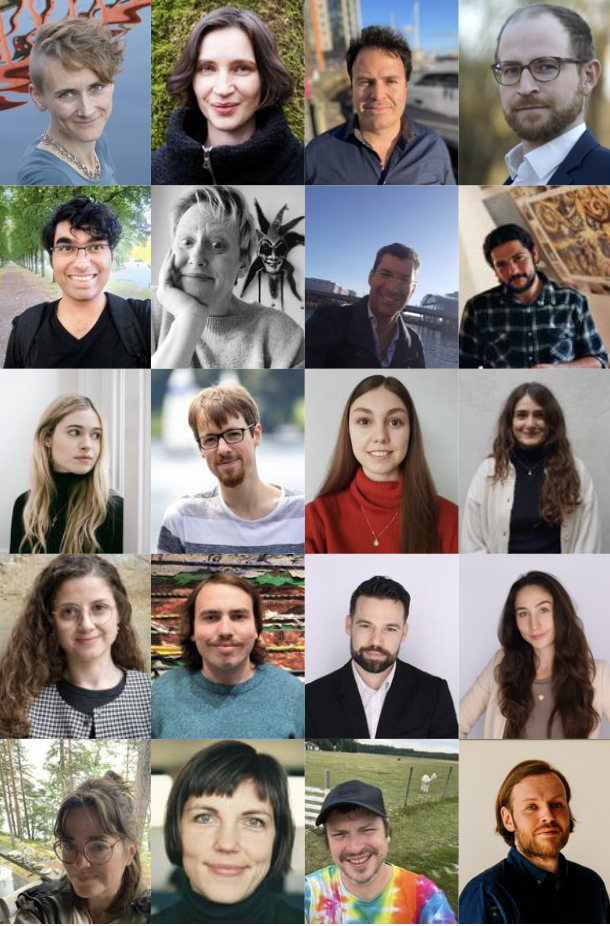
Theda Rehbock Philosophy Residency 2024 Scholarship Awards
We are thrilled to announce the recipients of the prestigious Theda Rehbock Philosophy Residency 2024/25 scholarships.
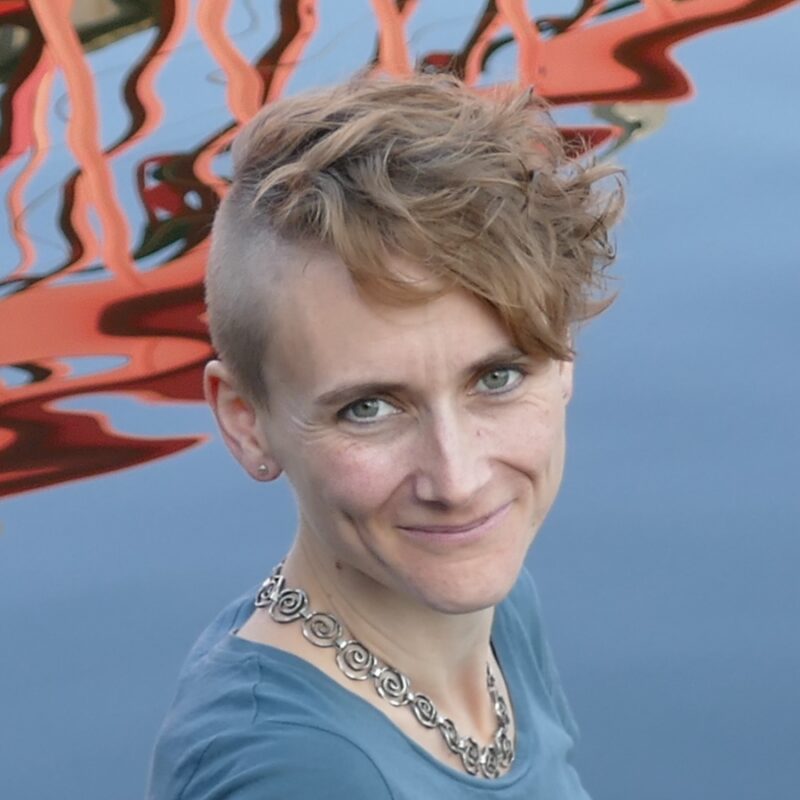
I Dr. Ruth Rebecca Tietjen
Assistant Professor, Department of Philosophy, Tilburg University
Project: Autotheoretical Explorations of the Politics of Loneliness
During my stay at Susimetsa, I am working on a project on the existential, social, and political foundations and implications of loneliness. First, I explore contemporary auto-theoretical accounts of loneliness to investigate the relationship between loneliness and social marginalization in connection with social categories such as class, age, and gender. This includes, for instance, Olivier David’s “Von der namenlosen Menge: ueber Klasse, Wut & Einsamkeit” (2023), Didier Eribon’s “Vie, vieillesse et mort d’une femme du people” (2023), and Nagata Kabi’s “My Lesbian Experience with Loneliness” (2016). Second, I compare and contrast these cases with cases in which members of privileged groups appeal to feelings of loneliness to justify their political demands. I am excited to work on this project in Susimetsa, hoping to find a solitary and inspiring place that allows me to fully delve into my project, thereby taking seriously the role of the material environment in understanding the experience of loneliness.
Residency Period: November 10th – November 24th 2024
Read about Ruth’s residency experience at Susimetsa HERE.
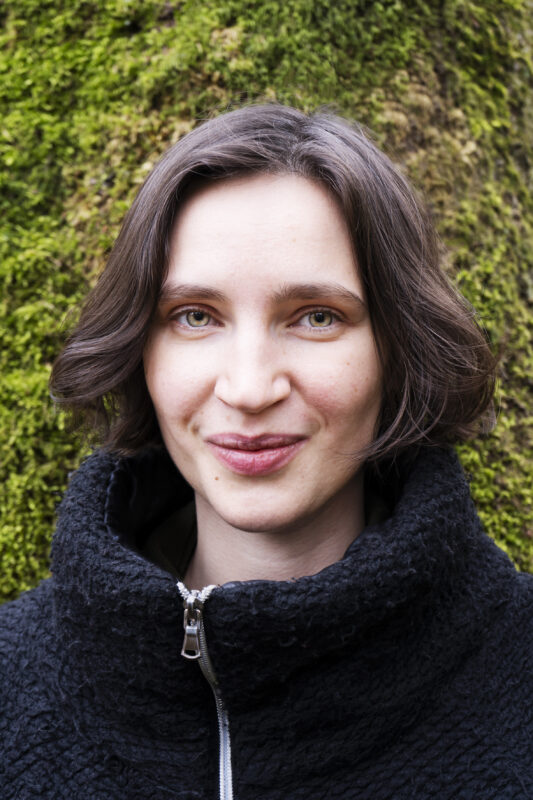
II Urte Laukaityte
PhD Candidate at UC Berkeley
Project: “Symptom Perception as Inference: The Scope of Functional Neurological Disorder and its Implications for Psychiatry”
Functional symptoms pose a complex challenge in clinical theorising and yet their existence underscores the plausibility of at least some form of mind-body medicine. Terms related to the phenomenon under consideration have included ‘hysterical’, psychosomatic, psychogenic, conversion, dissociative, somatoform, and so on. Although the relevant terminological terrain is vast and not without peril, ‘functional neurological disorder’ here refers to the state of distressing clinical symptoms that are not grounded in underlying physiological disease.
Several key findings are crucial to bear in mind. Firstly, such symptoms can be truly debilitating, and prognosis is often quite poor. Secondly, although functional symptoms are more straightforwardly diagnosable in neurology, any organ system or bodily function can be affected. Thirdly, functional neurological disorder is also prevalent with the lowest epidemiological estimates yielding 50/100,000 regarding seemingly neurological symptoms alone. Fourthly, it is not a diagnosis of exclusion, as there are commonly positive clinical signs associated with the condition – it is not simply a matter of no medical cause being found. Finally, and relatedly, functional neurological disorder is distinct from feigning or malingering, as well as other medical conditions, though it can co-exist with them.
Current medical practice often involves passing patients with functional neurological disorder on to the management of psychiatrists. This artificially reinforces the conceptual boundary between ‘physical’ ailments that are assumed to preserve their tight coupling with underlying disease and ‘mental’ complaints, if not. Accepting just how widespread functional symptoms are due to the inferential nature of symptom perception calls into question the feasibility of such an undertaking. I tease out the implications the inferential model has for the relationship between subjective patient experience and clinical practice rooted in objective signs and measures of underlying disease. Granting that symptom reports cannot function as automatically and fully reliable indicators of physiological disease to be targeted, I consider ways for medical care to reorient and meaningfully integrate the phenomenology of illness not just instrumentally but in its own right.
Residency Period: December 3rd-December 20th 2024
Read about Urte’s residency experience at Susimetsa HERE.
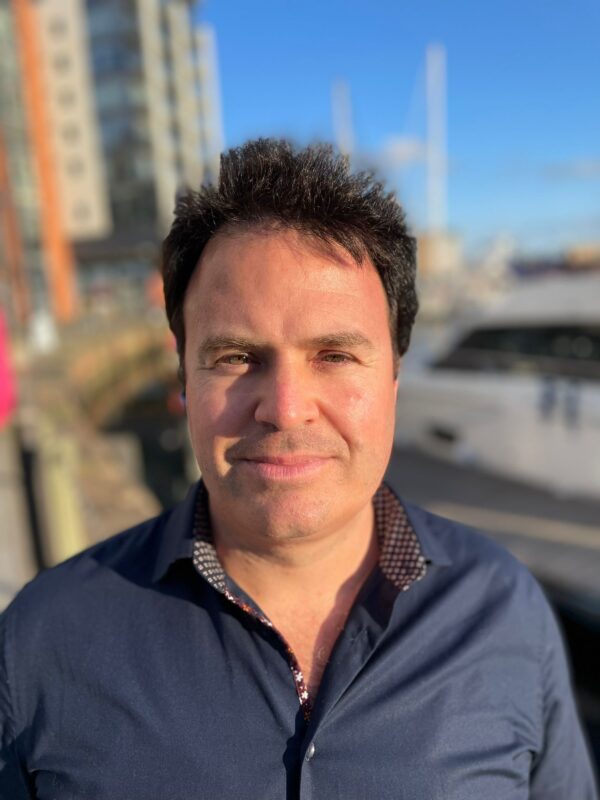
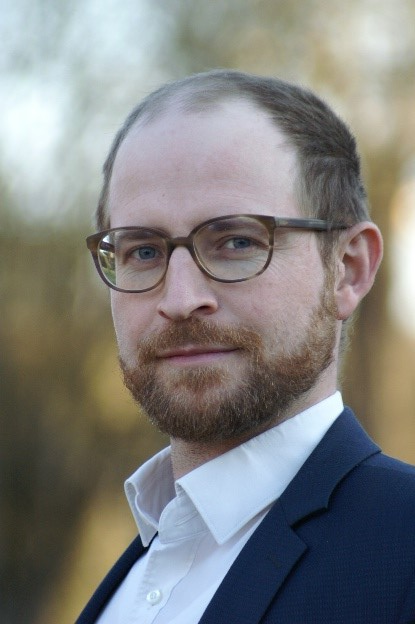
III Dr. Cristian Timmermann and Dr. Frank Ursin
Dr. Timmermann from Institute for Ethics and History of Health in Society, University of Augsburg, Germany &
Dr. Ursin from Institute for Ethics, History and Philosophy of Medicine, Hannover Medical School (MHH), Hannover, Germany
Project: Sustainability as a new principle of biomedical ethics
Climate change and environmental degradation are becoming the largest threats to health. As more health workers and bioethicists recognise the importance of reducing the environmental footprint of the health sector, there has been a renewed interest to reassess the classic principles of biomedical ethics – respect for autonomy, non-maleficence, beneficence and justice – and ask whether these principles are fit to address contemporary challenges. A straightforward response is to expand the classic set of principles by incorporating a new principle of “sustainability”. Yet this expansion leaves two questions open (a) how does this new principle interact with well-established physicians’ responsibilities towards individual patients? And (b) can environmental concerns be already addressed with the established biomedical principles, making a new principle redundant? Our aim during our research stay at Susimetsa is to develop answers to these questions.
Residency Period: 19th January – 2nd February 2025
Read about Timmermann’s & Ursin’s residency experience at Susimetsa HERE.

IV Nikhil Mahant
Marie Skłodowska Curie Postdoctoral Fellow, Uppsala University
Webpage: https://nikhilmahant.com/
Project: Future Ready Philosophy
Technology has been a major cause of transformative social and political changes. The invention of the written script, printing press, steam engine, birth control pills, vaccines, and internet have played a substantial role in leading us to the ideals that we currently endorse, crafting the size and structure of our societies, and instituting the political structure that we have in place today. Vis-à-vis earlier technological advances, however, the effects of modern artificially intelligent (AI) technologies drill deeper: their effects go beyond the social and political realm and seep into the personal. They make us question our very sense of self: Are we distinctive or special qua humans? Can artificial systems possess the features and capacities which we thought were quintessentially human? Are we just a step in the evolutionary ladder? What is our place in the universe?
My project at Susimetsa is motivated by the conviction that Philosophy has a large part to play in addressing and answering these questions. But it is also driven by a further conviction: while questions concerning existence, identity, the nature and extension of concepts, normativity, and value have traditionally been addressed within Philosophy, meeting the challenge posed by AI requires philosophy to rethink and update its aims, methods, subject matter, academic organization, and disciplinary history. Philosophy needs to be ready for the future. The outcome of the residency will be an outline of a research project, which identifies some of the most pressing question that Philosophy must confront to stay relevant and productive in the future. While the project will cast a wide net and include methodological and historical inputs from both the ‘western’ and global philosophical traditions, it will connect most directly with the contemporary discussions on conceptual engineering, the nature of consciousness, the role of language, and the relation between mind and the world within the analytic tradition.
Residency Period: February 21st – March 2nd 2025
Read about Nikhil’s residency experience at Susimetsa HERE.

V Prof. Dr. Amber L. Griffioen
Duke Kunshan University
Project: Issues at the Intersection of Philosophy and Psychology
During my philosophical residency at the Susimetsa Philosophicum, I will be focusing on two projects. First, I will be working on a paper for a volume on epistemic injustice and religion that deals with issues at the intersection of philosophy and psychology as it concerns the research on post-traumatic growth (PTG). It is my intention to critically interrogate the notion of trauma in the contemporary PTG literature and to discuss the potential dangers posed by the implicitly normative aspects of the PTG discourse, especially as it relates to such understudied phenomena as pregnancy loss and childbirth trauma. I intend to argue that the PTG literature involves a kind of normed “implicit paternalism” regarding the benefits of trauma that has long been at play in childbirthing discourses (e.g., the “goods” arising out of pain and trauma during labor) but which is now making its way into discourses surrounding miscarriage and even stillbirth or neonatal loss (e.g., pregnancy loss as an “opportunity” for growth).
Simultaneously, as I prepare to leave academia and transition into a career in existential coaching, I am in the process of developing online courses and workbooks for my coaching clients (especially those struggling with infertility and/or pregnancy loss) that walk them through different philosophical approaches to various relevant topics and how they can be applied in the service of helping them “struggle better”. Topics include approaches to emotion more generally, to grief in particular, and to the existential and spiritual tensions (e.g., between freedom and necessity, providence and chance, etc.) that arise in the context of reproductive struggle. Combining Theda Rehbock’s approach to Personsein in Grenzsituationen with the relational approaches of Hilde Lindemann (especially the idea of “calling” and “holding” individuals in personhood), I will try to develop resources that may be helpful for people with wombs who are trying to conceptualize and understand their feelings (of, e.g., joy, grief, ambivalence, relief, etc.) about their pregnancies and/or losses, or who are struggling to reconcile, say, their views about abortion with their experience of pregnancy loss.
Residency Period: March 7th – March 16th 2025
Read about Amber’s residency experience at Susimetsa HERE.

VI Dr. Christos Kyriacou
Department of Classics and Philosophy, University of Cyprus
Project: Epistemic Rationality and Reference Magnetism
I explore how epistemic rationality may be an elite, referentially magnetic property. An elite, referentially magnetic property in the sense that the corresponding rationality predicate must minimally reliably refer to the rationality property (as if the property has magnetic qualities and attracts the predicate’s reference). As I understand eliteness, roughly, elite properties are metaphysically fundamental properties that are explanatorily indispensable for objective rational argument. They are properties that should exist if we are to make sense of reality in a truth-tracking manner.
Residency Period: April 15th – April 24th 2025
Read about Christos’ residency experience at Susimetsa HERE.

VII Dr. Ozan Altinok
Institute for Advanced Studies for the Ethics of the Sciences, Leibniz University of Hannover
Project: Epistemic agency in the making of health-related concepts
Health-related entities are “booming”. From nutrition to microbiome to imagined ancestry, we construct increasingly diverse health-related concepts, leading to wider health ontologies. Attempts to develop different entities in context have one main challenge, which is the explanatory and interventive potential as well as any pragmatics of the new concepts are “open” due to their lack of connection to other health-related concepts.
This project will a) question the health metaphysics from a pluralistic perspective and b) try to investigate that lacuna from perspectives of philosophy of science & hands-on ethics to address issues around questions of pragmatics and the ethics of the decision-making around the health-related concepts, trying to increase epistemic autonomy of the individuals in the making of health-related concepts as well as concepts of health and disease, answering not only where to use them but who should use them.
Residency Period: April 2nd – April 15th 2025
Read about Ozan’s residency experience at Susimetsa HERE.

VIII Emily Daly
DPhil (PhD) Candidate in Philosophy at the University of Oxford
Project: Laughter and the Good Life in Plato and Aristotle
During my time at Susimetsa, I will be working on the final chapter of my doctoral thesis. My thesis investigates the role that laughter (gelōs) plays in the good life for Plato and Aristotle. It proposes that, for both philosophers, what one laughs at, how one laughs (whether gently or passionately), and who one laughs with, serve as powerful indicators of an agent’s soul health. Moreover, my thesis examines the complex interconnections between the bodily act of laughing and the following phenomena in Plato and Aristotle: the psychological state(s) underpinning laughter, the ‘ridiculous’ (to geloion) as a particular type of content, the genre of comedy, friendship, and, in the case of Aristotle, the virtue of eutrapelia (wittiness).
The chapter which I will be working on during the residency is on the ethics and aesthetics of comedy in Aristotle. In the Politics, Aristotle asserts that, while the young should not be spectators of iambus or of comedies, moral paideia renders the rest of the citizens immune from harm (Pol. 1336b16-19). Elsewhere, he claims that, by emphasising the importance of moral paideia, he is following in the footsteps of Plato (EN 1104b11-14). But if this is the case, why does moral paideia provide sufficient protection against the harmful effects of comedy for Aristotle but not for Plato? In the first half of this chapter, I aim to answer this question through a comparison of their aesthetic and moral theories. In the second half of this chapter, I explore whether there is a type of comedy which Aristotle views not only as harmless but as morally beneficial to the educated agent. I consider the possibility that Aristotle posited a comic as well as a tragic katharsis in the lost second book of the Poetics and propose that, on this view, laughter is vital for the attainment of such a katharsis.
Residency Period: April 2nd – April 15th 2025
Read about Emily’s residency experience at Susimetsa HERE.
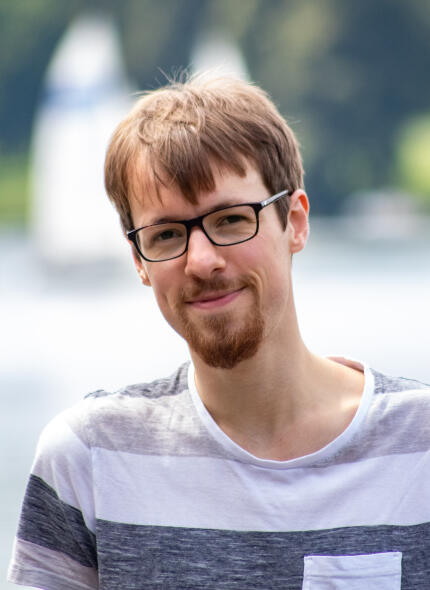
IX Jonas Pöld
Institute of Ethics, History and Theory of Medicine, University of Münster / Hans Albert Institute, Berlin
Project: Facts and Values in Medicine
My aims for the stay in Susimetsa are to write a paper and outline a post-doctoral research project on the relationship between facts and values in the medical sciences. In analytic philosophy, a lot of attention has been sparked by so-called “thick concepts” which include both factual and evaluative content. When we characterize an action as “cruel”, for example, we are simultaneously describing and judging features of it. Interestingly, the sciences of biology and medicine also involve plenty of thick concepts: Ascriptions of organic function and dysfunction, health and disease, physiology and pathology appear to be both factually informative and value-laden as well. But what are the consequences of this conceptual understanding? Is it possible and desirable to neatly separate facts and values in medicine? I hypothesize that an improved understanding of thick concepts helps us to elucidate the entangled relationship between the medical sciences and medical ethics. Furthermore, it offers a contribution to the ongoing general debate on the place of values in science and on the question whether science can and should aspire to the normative ideal of value-freedom.
Residency Period: April 2nd – April 15th 2025
Read about Jonas’ residency experience at Susimetsa HERE.
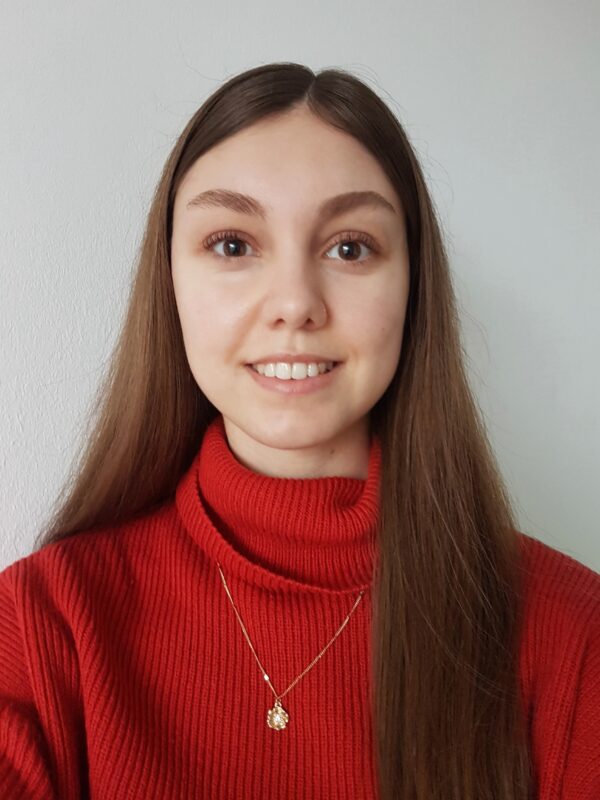
X Maja Mateas
Master’s student and academic assistant, Trier University, Germany
Project: Plato’s Conception of ‘Mimesis’ in the Context of AI Image Generation
Combining Plato and Artificial Intelligence is perhaps not the most obvious choice of topic. One possible intention of the AI image generation focussed on in my project is that AI-generated images can deceive, raising the question of how they are able to do so. This is where Plato’s view comes into play, as the claim pursued in my project is that his perspective can be applied to answer this question. What I think Plato provides ‒ particularly in Republic X and the Sophist, two of his works on which my research will primarily focus ‒ is a coherent theory of ‘mimesis’ and ‘appearances’ that encompasses all important areas in order to explain how deception works. He addresses this topic very specifically using the example of images, which he associates with falsehood and deception. It is precisely this connection that can be applied usefully to AI-images that harbour a potential intention to deceive. While Republic X provides an overview of the conception of ‘mimesis’ in general, the Sophist focusses on the human intention to deceive and the effects of deception, embedded in an investigation of the nature of the Sophist and questions concerning falsehood and non-being, among other topics. Plato’s approach helps us understand the fundamental mechanisms of deception since the phenomena he considers are similar to the object of inquiry I am interested in. Arising from Plato’s approach, there are, of course, ethical implications, which I will address in a later phase of my project.
Residency Period: April 2nd – April 15th 2025
Read about Maja’s residency experience at Susimetsa HERE.
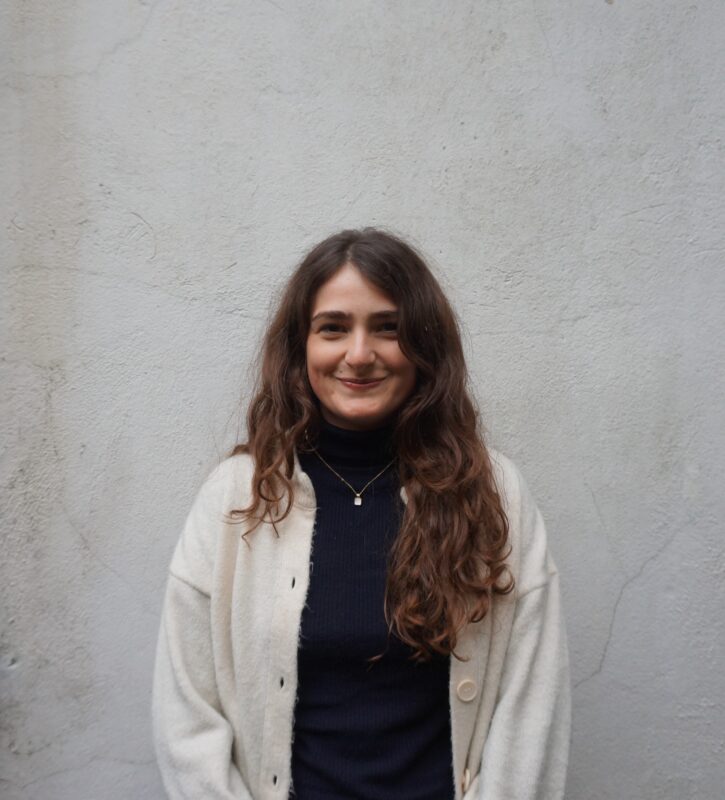
XI Helena Ward
Faculty of Philosophy, The Institute for Ethics in AI, and The Uehiro Oxford Institute, University of Oxford
Project: What is an epistemic privacy loss, and when does it amount to a privacy infringement?
Epistemic accounts of privacy describe losses of privacy in terms of epistemic states. An individual may be said to possess informational privacy with respect to a true proposition about them vis-à-vis a given subject S when S does not have epistemic access to P, and an individual may be said to have lost privacy when S has epistemic access to P. But what sorts of epistemic states amount to privacy losses? And when does a privacy loss amount to a privacy infringement?
The paper I will be working on during the Susimetsa residency has two aims. The is descriptive—it aims to define what kinds of epistemic states constitute privacy losses. Contrary to the dominant approach in theories of informational privacy, I argue that knowledge is not necessary for privacy loss and propose an account on which true beliefs are sufficient for privacy loss only if they are beliefs for which we have good reason.
The second aim of the paper is normative and aims to understand when a loss of privacy amounts to a violation of the right to privacy. I will criticise and build upon three existent accounts: one based on risk (Lundgren, 2021), one modal robustness account (Véliz, 2024), and one recent account defining violations in terms of inquiry (Munch, forthcoming).
Residency Period: March 16th – March 31st 2025
Read about Helena’s, Anna’s & Paul’s residency experience at Susimetsa HERE.
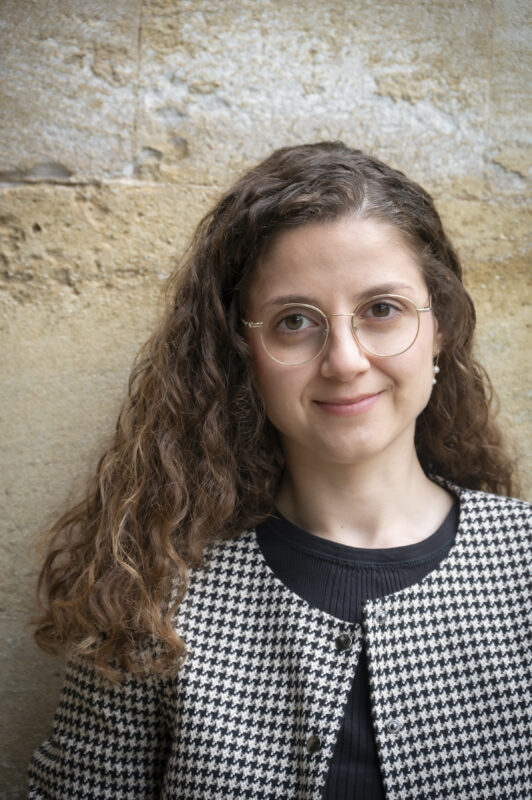
(Photo credit:
Keiko Ikeuchi)
XII Anna Golova
Faculty of Philosophy & Uehiro Oxford Institute, University of Oxford
Project: Mental Illness and the Self – Ambiguity, Authenticity, and Autonomy
During the stay at Susimetsa, I will work on my PhD project which explores the relation between mental illness and the self. This complex relation is especially problematized in the phenomenon ‘self-illness ambiguity’, a difficulty experienced by some mental health service users in attempting to distinguish their mental health condition from their own identity and agency.
I aim to scrutinize the phenomenon of self-illness ambiguity and some of its theoretical presuppositions regarding the self-illness relation. As well as considering potential debunking arguments regarding self-illness ambiguity, I will investigate the self-illness relation by means of a case study on service users whose ethical dietary commitments may become intertwined with their eating disorder.
Residency Period: March 17th – March 31st 2025
Read about Helena’s, Anna’s & Paul’s residency experience at Susimetsa HERE.
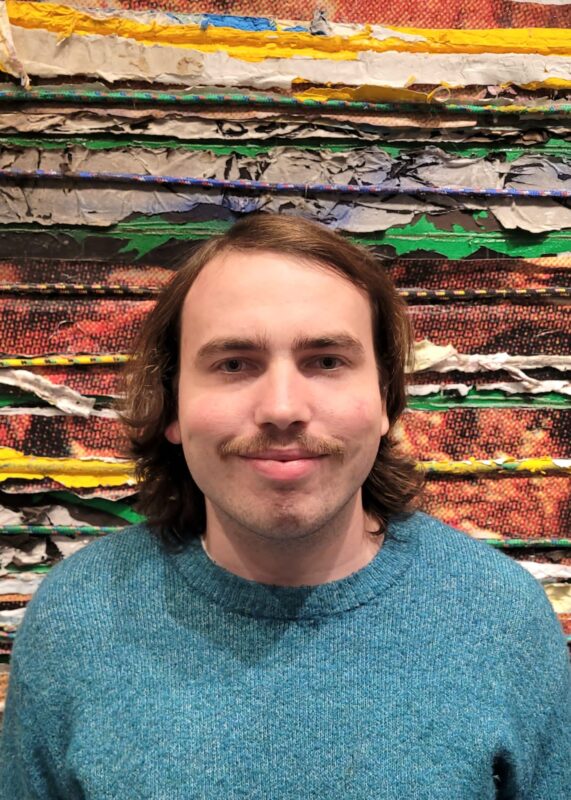
XIII Paul Heller
Faculty of Philosophy & Uehiro Oxford Institute, University of Oxford
Project: An objective list theory for all well-being subjects
Well-being refers to goodness for a particular individual. One of the main goals of a theory of well-being is to determine which things are finally good for which individuals. Presently, hedonism, desire-satisfaction theories, and objective list theories are generally regarded as the front-running theories of well-being for persons.
Whereas there is a large body of literature on the well-being of persons, there is rather less on the well-being of non-human animals. This has meant that many aspects of well-being remain unexplored, especially outside of hedonistic approaches. I aim to describe and defend a ‘universal’ objective list theory according to which there is a single list of objective goods for all well-being subjects. In presenting this theory, I aim to answer four questions: (1) Why think that the objective list approach is plausible for non-humans, (2) Why think that a universal approach is the best approach to theorising well-being, relatedly, (3) Why think that the items on the list are constant across all beings, and (4) How should we determine the contents of the list.
My hope is to then use this theory of well-being to form the basis of a theory of well-being comparison and aggregation across species in future work.
Residency Period: March 17th – March 31st 2025
Read about Helena’s, Anna’s & Paul’s residency experience at Susimetsa HERE.
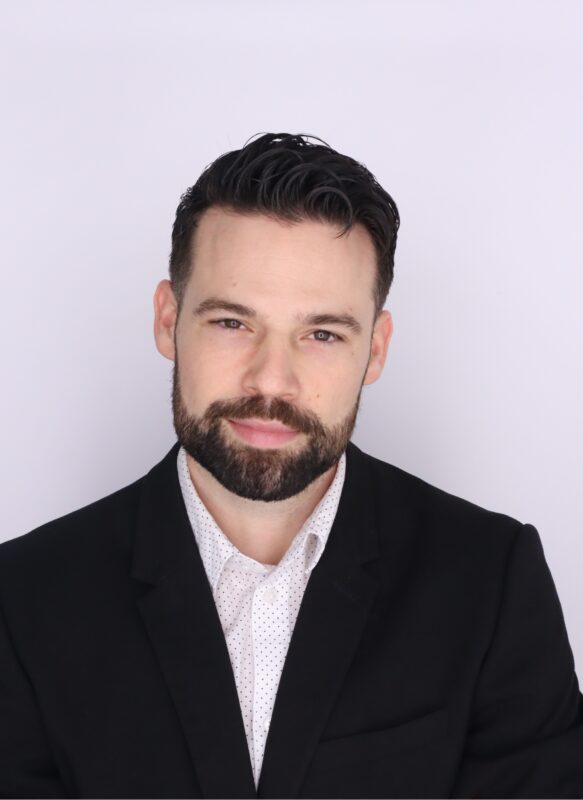
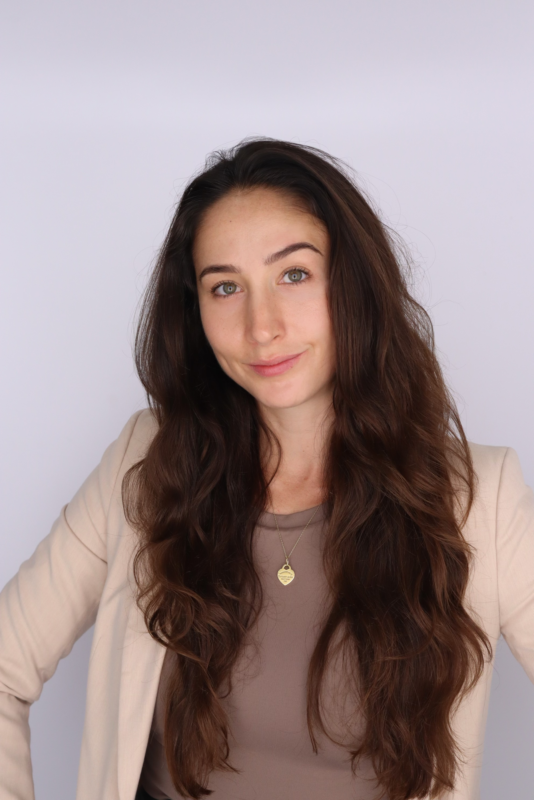
XIV Dylan Bailey and Nona Kiknadze
Dylan Bailey – Postdoctoral Research Fellow, Department of Religious Studies, University of South Florida
Nona Kiknadze – PhD Candidate in Counseling Psychology, University of Miami
Project: Mental Pain, Stigmatization, and Assisted Suicide: A Transdisciplinary Approach
During our residency at Susimetsa, we will investigate whether there is a meaningful philosophical distinction between physical and mental pain as a justification for assisted suicide. The stigmatization of suicidal ideation appears in the distinction made between physical and psychological pain in determinations of the moral and legal permissibility of assisted suicide. For instance, in almost all countries where assisted suicide is legal, it is only permitted in cases of chronic physical pain. Nowhere is chronic psychological pain or a rational judgment that one’s life is no longer worth living permissible as a reason to seek assisted suicide. Our research will entail a careful consideration of whether the stigmatization of chronic mental pain, which views it as epistemically irrational and/or insufficient as a legally-recognized reason for assisted suicide, is philosophically defensible.
We will consider whether (1) psychological pain can be the result of a stable, epistemically rational consideration of one’s circumstances, (2) there is a meaningful moral distinction between psychological and physical pain in these cases, and (if so) (3) making this distinction is relevant to the question of whether an intractably suffering person has the right to end their life. Philosophical and psychological scholars often provide very different answers to these questions, based on sometimes significant theoretical and practical disciplinary considerations. Employing our respective disciplinary backgrounds, we plan to compare and contrast philosophical and psychological approaches to these questions, exploring possible resolutions to this disciplinary tension.
Residency Period: April 25th – May 3rd 2025
Read about Dylan’s & Nona’s residency experience at Susimetsa HERE.
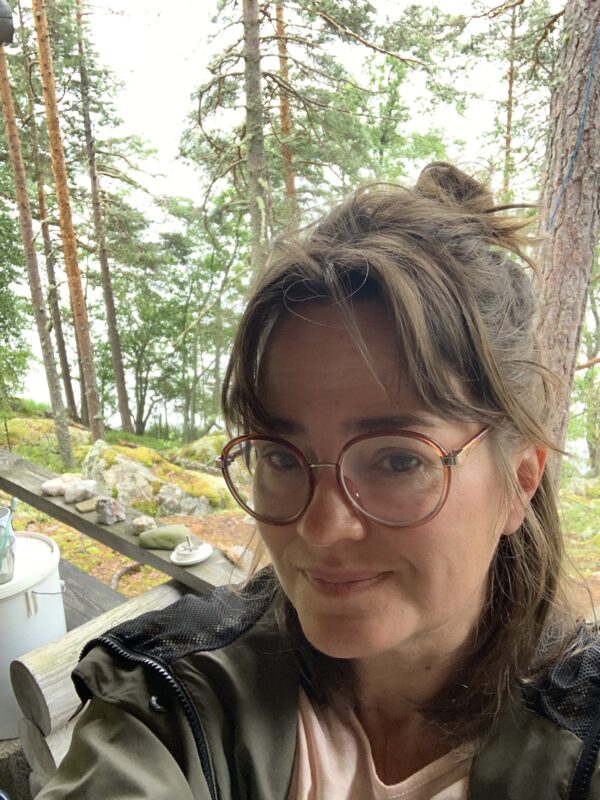
XV Pauliina Remes
Professor at the Department of Philosophy, University of Uppsala
Project: Joint Inquiry: A Platonic Approach
Pauliina Remes will be working in Susimetsa on her book that concerns Plato’s account of norms that govern joint inquiry. The aim of her book is to provide a detailed account of Plato’s views of the roles of people in joint inquiries, their mutual responsibilities and obligations. The book is part of a larger project: Joint Inquiry: A Platonic Approach (https://www.uu.se/en/department/philosophy/research/research-projects/joint-inquiry)
Residency Period: May 4th – May 11th 2025
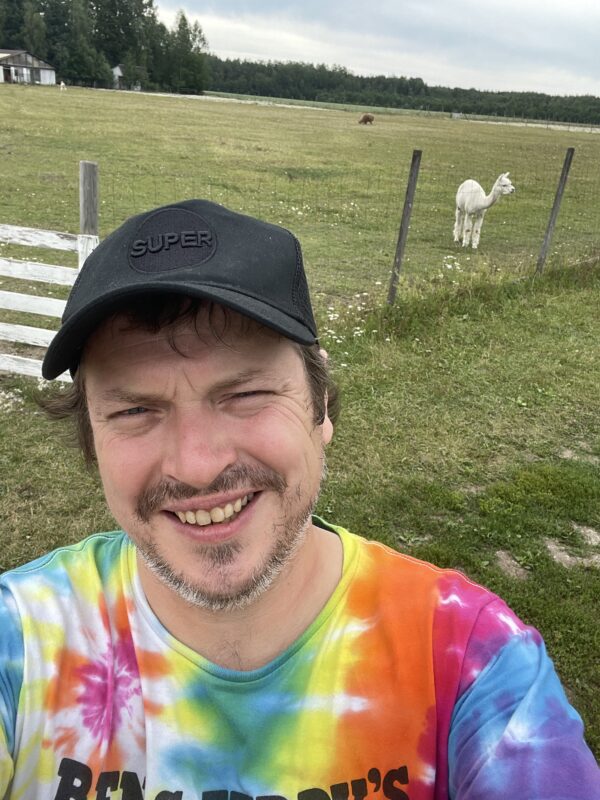
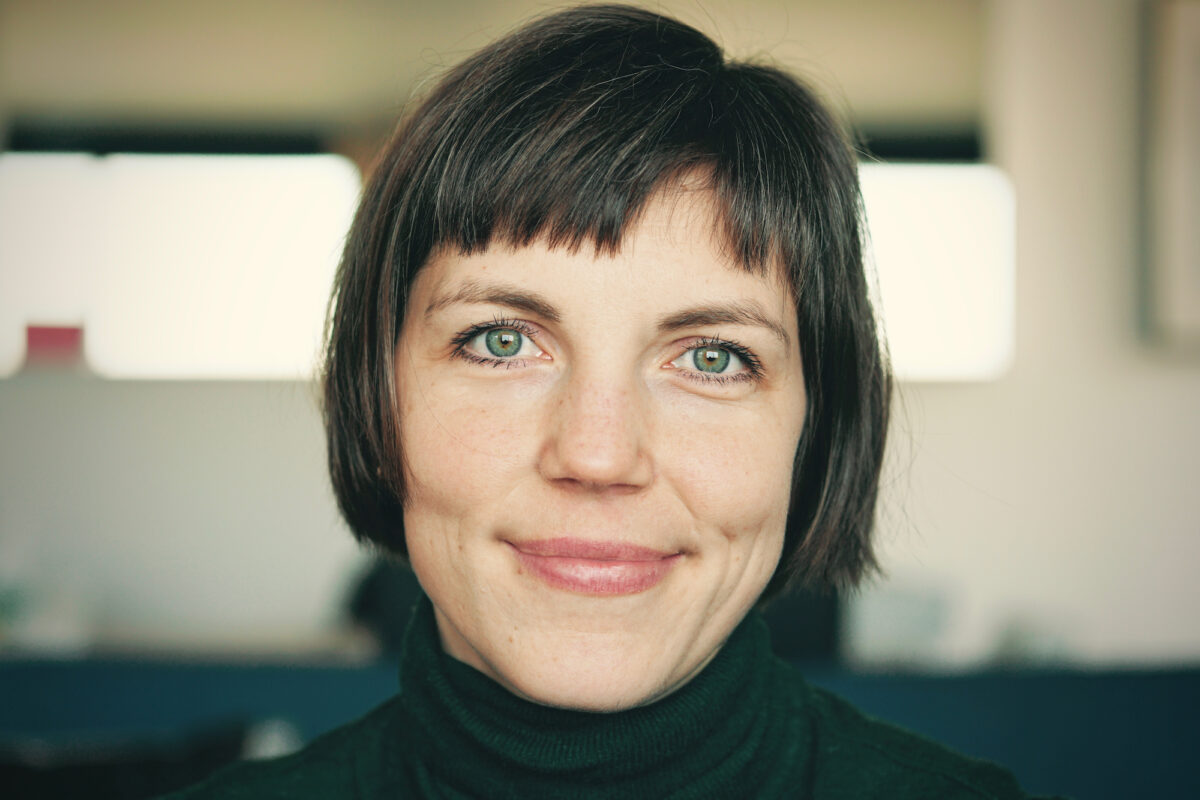
XVI Laura Viidebaum and Toomas Lott
Laura Viidebaum – Associate Professor of Classics, Department of Classics, New York University
Toomas Lott – Researcher at Department of Philosophy, Uppsala University
Project: Ancient Conceptions of Expertise
Laura Viidebaum and Toomas Lott will be working on a collaborative paper on ancient conceptions of expertise. Drawing on texts from Attic oratory, tragedy and history, they will argue that the dominant conception of the layperson-expert relationship in classical Athens was that of the expert-as-advisor. They will show that Plato’s Socratic dialogues are the first systematic attempts to problematize this default attitude and instead propose a new, highly provocative, conception: expert-as-authority.
Residency Period: May 4th – May 11th 2025
Read about Toomas’ & Laura’s residency experience at Susimetsa HERE.
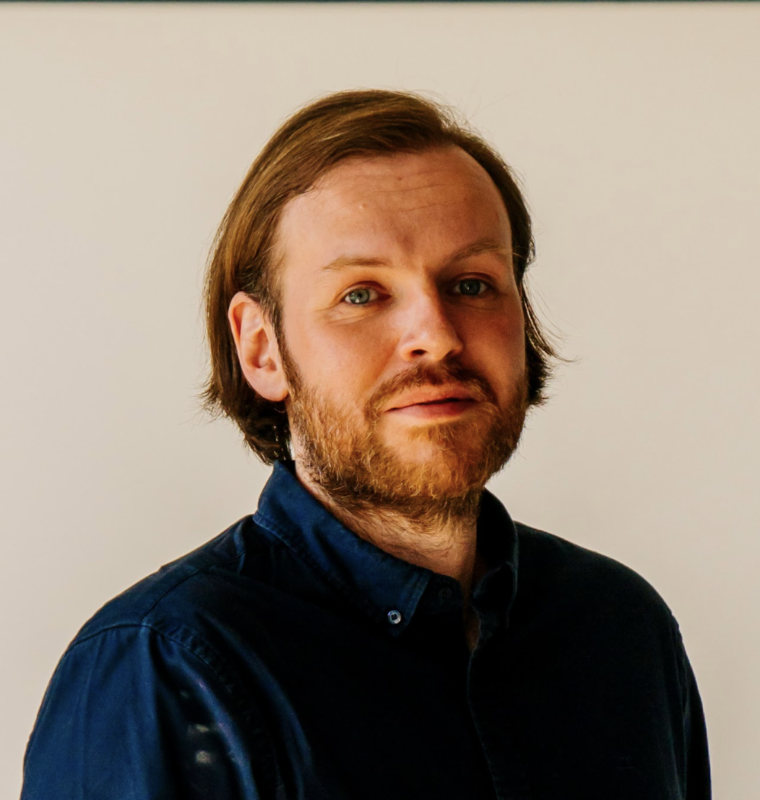
XVII Prof. Dr. Robert Ranisch
Junior Professor of Medical Ethics with a focus on Digitization, Faculty of Health Sciences Brandenburg, University of Potsdam
Project: Human – Machine – Medicine: Ethical Aspects of Generative AI in Healthcare
My project aims to explore the changing dynamics of the doctor-patient relationship with the increasing use of AI in healthcare, particularly the use of generative AI and large language models (LLMs). By drawing on historical examples of technological innovations in medicine, the project will contextualize these developments and address whether ethical aspects of contemporary medical AI are truly novel or simply “old wine in new bottles”.
It would be argued that although the ethical challenges AI introduces are not new, they are becoming more pressing along three key axes of the interaction between Human-Machine-Medicine: automation bias, responsibility gaps, and the manifestation of human biases within AI systems. The goal is to produce an academic article that critically evaluates how AI technologies are reshaping medical practice and the doctor-patient relationship from an ethical perspective.
Residency Period: May 20th – June 1st 2025
Read about Robert’s residency experience at Susimetsa HERE.
